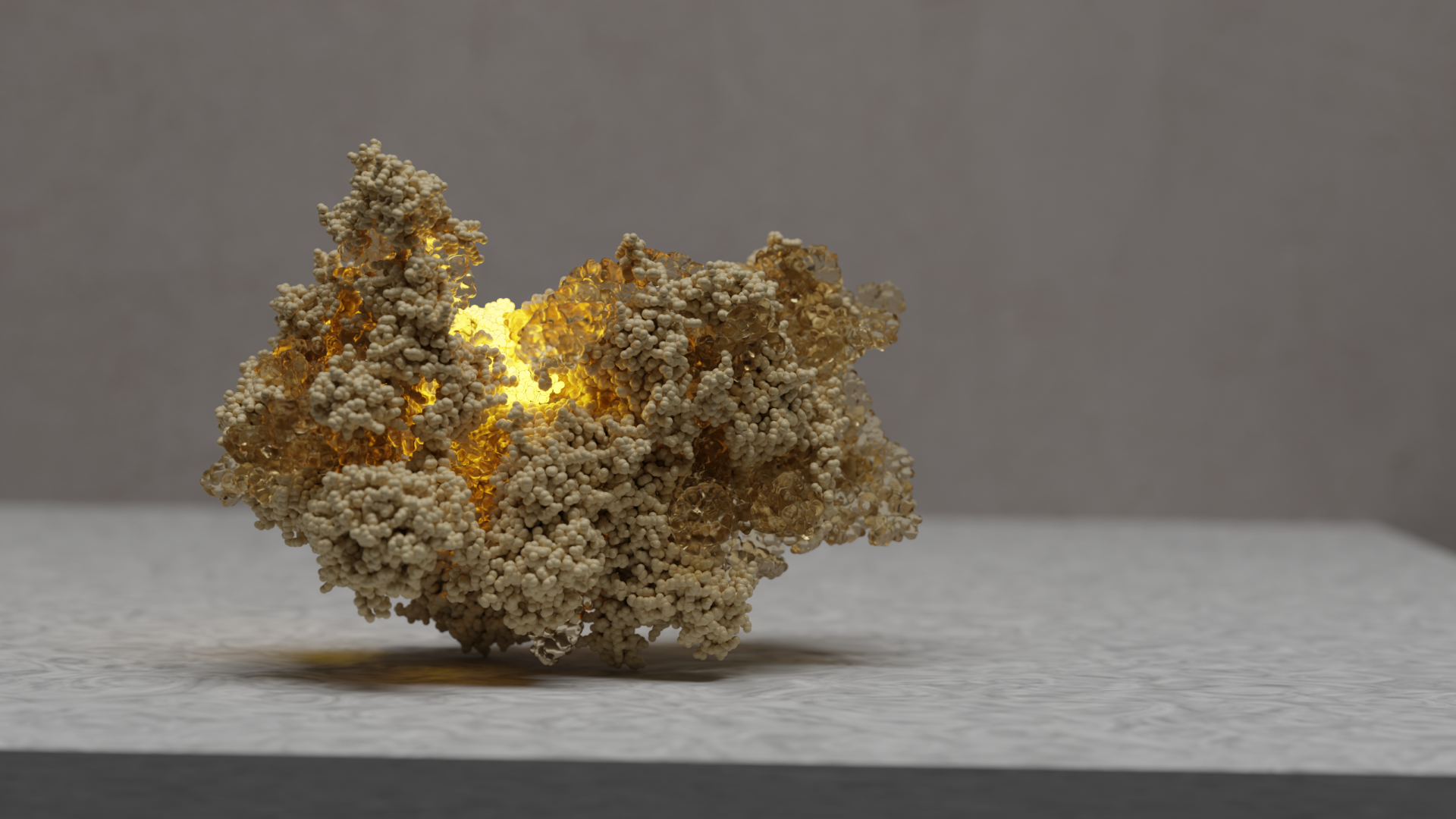New strategy against coronaviruses
Researchers at the University of Bern have analyzed a mechanism by which the coronavirus manipulates human cells to replicate itself. They show that a coronavirus protein, which is central to infection, has two independent functions. Only one function however occurs in several species of coronaviruses. These findings could drive the development of broad-spectrum antiviral drugs.
Five years have passed since the coronavirus pandemic began. Although biomedical research has delivered groundbreaking vaccines and treatments in record time, coronaviruses remain a global threat. Not everyone can be vaccinated, and for high-risk patients, infection with the virus can still be serious or even fatal. Coronaviruses can mutate rapidly and overcome the effectiveness of vaccines or drugs. New antiviral agents are therefore urgently needed to counter potential future coronavirus outbreaks.
A team led by PD Dr Evangelos Karousis from the Department of Chemistry, Biochemistry and Pharmaceutical Sciences at the University of Bern has now gained new insights into Nsp1 protein (non-structural protein 1) of coronaviruses which is central to infections. These findings point the way to the targeted development of broad-spectrum antiviral therapies against coronaviruses. The research team is part of the National Centre of Competence in Research NCCR RNA & Disease of the Swiss National Science Foundation, for which the University of Bern is Leading House and ETH Zurich is Co-Leading House. The study is supported by the Multidisciplinary Centre for Infectious Diseases (MCID) at the University of Bern. The research results were recently published in the scientific journal Cell Reports.
Two mechanisms for controlling the host cell
Nsp1 is one of the first viral proteins to be produced in the human cell during infection by coronaviruses such as SARS-CoV-2 and MERS-CoV. Earlier studies within the framework of the NCCR RNA & Disease and in collaboration with the group of Prof Nenad Ban from the ETH Zurich and the group of Prof Dr Volker Thiel from the Institute of Virology and Immunology at the Vetsuisse Faculty of the University of Bern had already shown that a key function of Nsp1 is to manipulate the host cell such that it produces more viral proteins than the cell's own proteins. "Nsp1 achieves this by two mechanisms: on the one hand by inhibiting the production of the cell's own proteins, and on the other hand by the targeted destruction of the cell's own mRNA, which contains the blueprints for vital host proteins," summarizes Evangelos Karousis, last author of the study. However, it was unclear until now whether these two mechanisms are interconnected or can occur separately.
Independent functions of Nsp1
The present study shows that Nsp1 must bind to ribosomes to fulfil both functions. However, degrading the cell's own mRNA does not require protein synthesis inhibition. "By decoupling the different functions of Nsp1, we gain new insights into the basic mechanisms by which coronaviruses suppress host cell protein production," explains Karousis. The researchers also compared whether the functions of the Nsp1 protein differ between SARS and MERS coronaviruses. "Surprisingly, we found that Nsp1 from MERS-CoV only inhibits protein production, but does not trigger the destruction of mRNA," says Emilie Bäumlin, first author of the publication and former Master student of the interdisciplinary Master program "Molecular Life Sciences" at the University of Bern. The mechanism of destroying the host's own mRNA is therefore not common to all species of coronaviruses. The study thus suggests that drug development should focus on the binding of Nsp1 to human ribosomes rather than on the degradation of mRNA.
In their experimental system developed at the University of Bern, the researchers tested whether certain known drugs such as Amentantrone and Montelukast could inhibit Nsp1. "We were unable to demonstrate any inhibition of Nsp1 functions with either drug though," says Karousis. Further research is needed to identify molecules that could specifically block the interaction of Nsp1 with ribosomes and thus interrupt the virus's control over human cells.
A step towards antiviral pan-coronavirus therapies
The findings will help to prioritize more targeted strategies for the development of antiviral agents. “Nsp1 is unique to coronaviruses and has no equivalent protein in humans. It plays a crucial role in the replication of the virus; it is active early in the infection process and moreover well researched. Altogether, this makes Nsp1 a promising target for broadly effective antiviral drugs that could stop infections at an early stage," concludes Karousis.
Publication:Bäumlin E, Andenmatten D, Luginbühl J, Lalou A, Schwaller N, Karousis ED (2025). The impact of Coronavirus Nsp1 on host mRNA degradation is independent of its role in translation inhibition. Cell Reports Mar 27;44(4):115488. Epub ahead of print. PMID: 40153437. |
Multidisciplinary Center for Infectious Diseases (MCID) of the University of BernThe MCID is the youngest strategic center at the University of Bern. It was established in 2021 with the generous support of the Vinetum Foundation and is based at the Vetsuisse Faculty. The MCID is dedicated to researching and mitigating the health, societal, ethical, and economic risks of infectious diseases. The founding of the MCID was a direct result of the SARS-CoV-2 pandemic, which highlighted the threat of infectious diseases not only to personal health and healthcare, but to all areas of modern life, regardless of individual circumstances. Research is needed to draw lessons from the past and from the current pandemic, and to investigate, develop and validate future preparedness concepts for infectious disease and pandemic outbreaks. The MCID consists of 70 members from the University of Bern, the Inselspital Bern and associated institutes. It is led by Prof. Dr. Volker Thiel and Prof. Dr. Carmen Faso. |
NCCR «RNA & Disease – The Role of RNA Biology in Disease Mechanisms»The NCCR «RNA & Disease – The Role of RNA Biology in Disease Mechanisms» studies one of the most central molecules of life: RNA (ribonucleic acid) is pivotal for many vital processes and functionally much more complex than initially assumed. For instance, RNA defines the conditions, in each cell, under which a given gene is or is not activated. If any part of this process of genetic regulation breaks down or does not run smoothly, this can cause heart disease, cancer, brain disease and metabolic disorders. The NCCR brings together Swiss research groups studying different aspects of RNA biology. By researching which regulatory mechanisms are dysregulated in disease, the NCCR discovers new therapeutical targets. Leading institution is the University of Bern, with the ETH Zurich co-leading. National Centers of Competence in Research are a research instrument of the Swiss National Science Foundation (SNSF). |
2025/04/01



